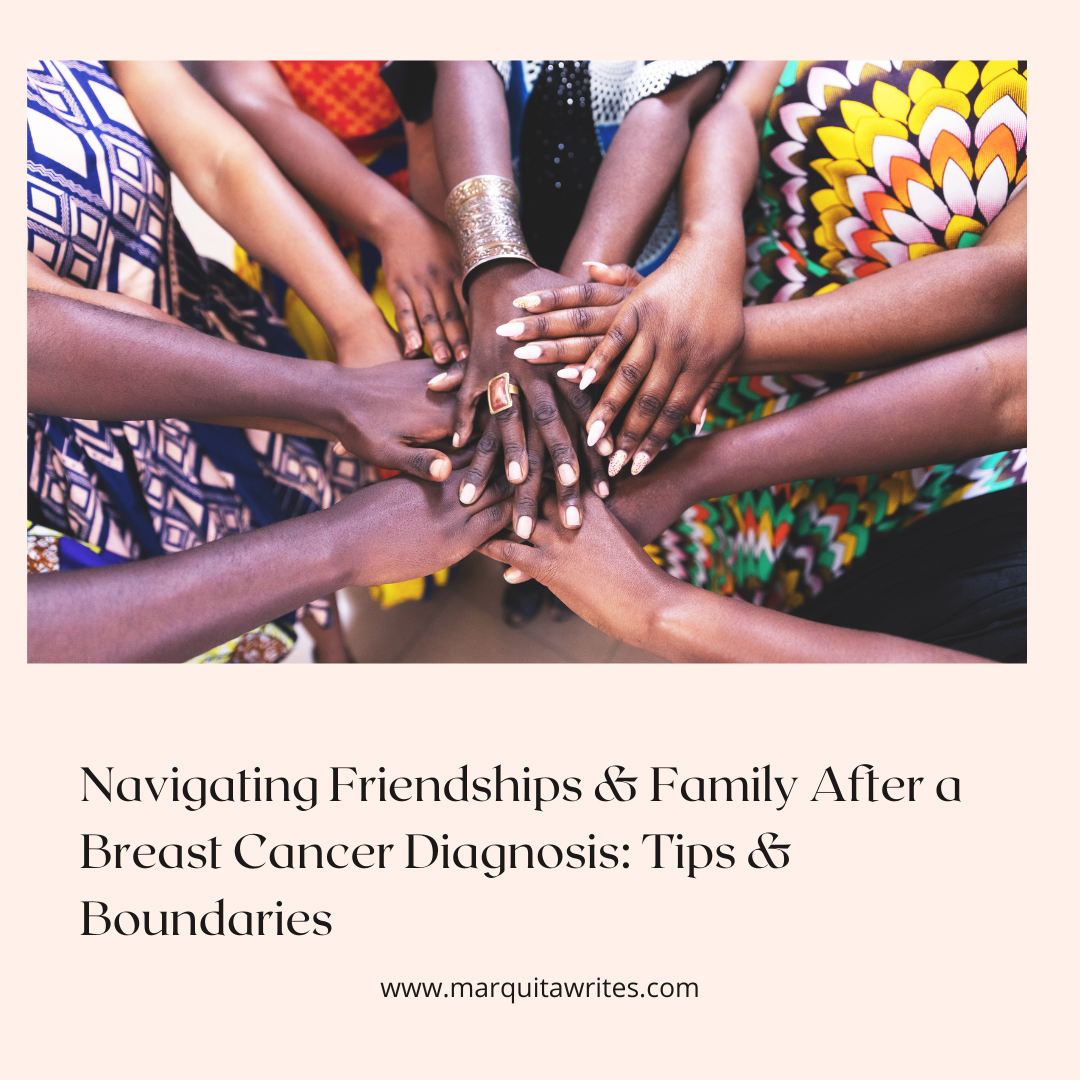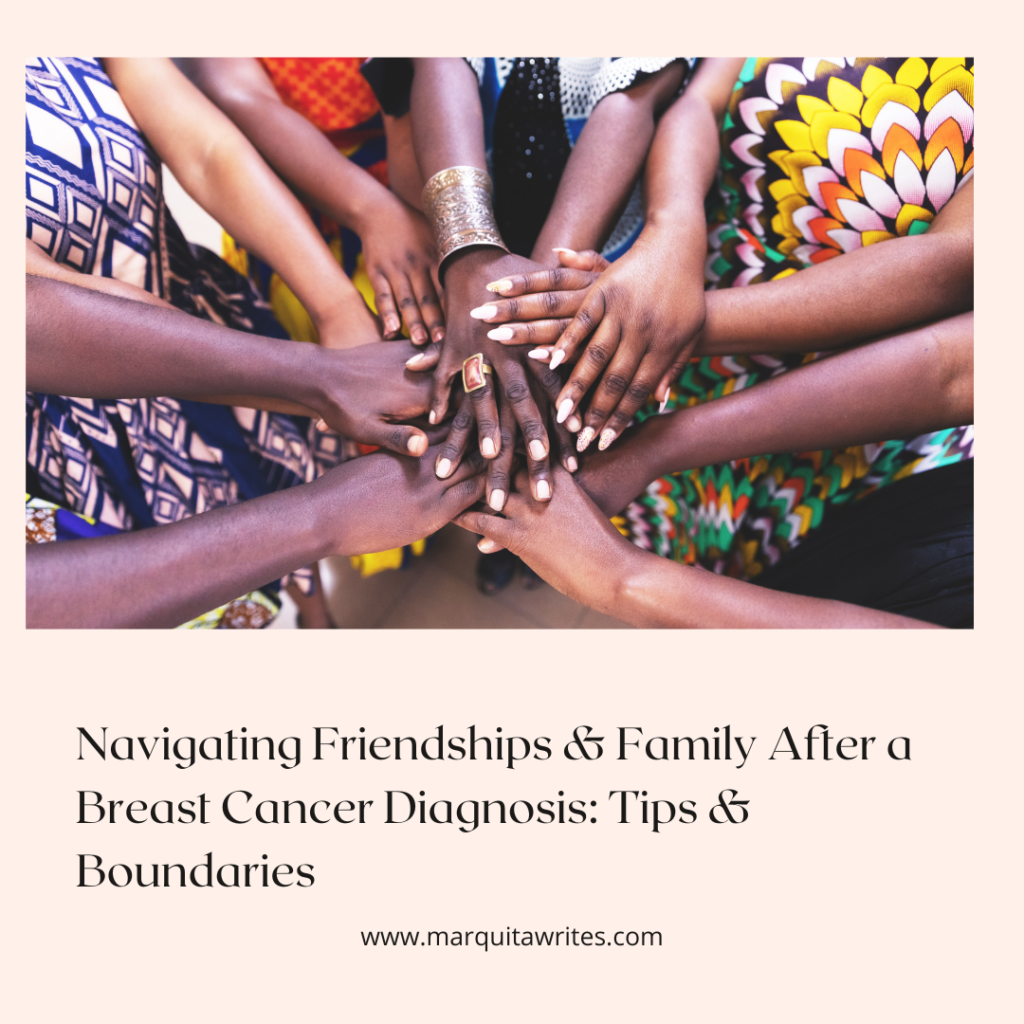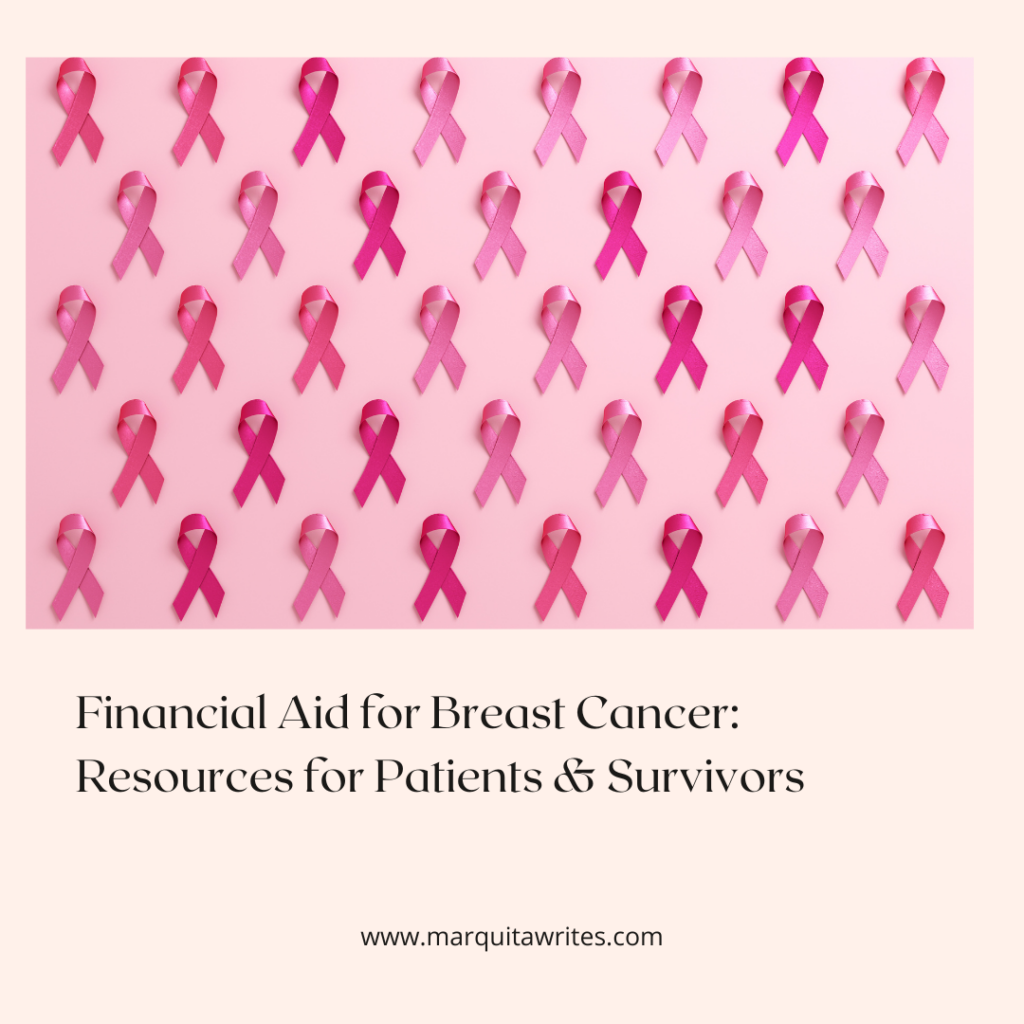
Navigating Friendships & Family After a Breast Cancer Diagnosis: Tips & Boundaries

Going through a breast cancer diagnosis is a deeply personal and often overwhelming experience. One of the many things you might find yourself thinking about is how to navigate your relationships with family and friends. How do you share the news? Who do you tell? What boundaries do you need to set? These are all valid questions, and there’s no single “right” answer. What works best is what feels right and most supportive for you.
Deciding Who and How to Tell:
This is entirely your decision. You are in control of your information and who you choose to share it with. Some people feel a sense of relief in sharing with their loved ones early on, finding strength in their support. Others prefer to process the initial shock and create a plan before talking to others. There’s absolutely no pressure to share anything you’re not ready for.
Consider these points when making your decision:
- Your Comfort Level: Who in your life makes you feel safe, supported, and understood? These might be the first people you choose to tell.
- Your Energy Levels: Sharing your diagnosis can be emotionally and physically draining. Think about when and how you have the energy to have these conversations.
- Your Need for Support: Who do you think will be the most helpful and supportive during this time?
- Privacy: How much information are you comfortable sharing, and with whom?
Once you’ve decided who you want to tell, think about the best way to do it. This could be a face-to-face conversation, a phone call, an email, or even a group message. Choose the method that feels most comfortable and manageable for you.
Choosing a Point Person:
If you decide to share your diagnosis more broadly, having a designated point person can be incredibly helpful. This could be a partner, a close friend, or a family member who is organized and good at communicating. They can help:
- Share Updates: You can give them updates, and they can relay the information to others, saving you from having to repeat your story multiple times.
- Coordinate Help: If people offer assistance, your point person can help organize meals, rides, or other forms of support.
- Filter Communication: They can help manage inquiries and ensure you’re not feeling overwhelmed by constant messages.
Navigating Conversations and Setting Boundaries:
It’s natural for people to want to offer support, but sometimes their words or actions might not be what you need. It’s okay to set boundaries and communicate what you’re comfortable with.
- What to Say (and What Not To): Think about what kind of support you’d appreciate hearing. For example, instead of generic phrases like “Stay positive,” you might prefer to hear “I’m here for you, whatever you need.” If there are specific things you don’t want to hear, it’s okay to gently let people know. For instance, “I appreciate your concern, but I’m not really up for discussing specific survival rates right now.”
- Dealing with Unsolicited Advice: Everyone will have an opinion or a story to share. While some might be helpful, others can feel overwhelming or even hurtful. You have the right to politely say, “Thank you for the suggestion, I’m working closely with my medical team on my treatment plan.”
Protecting Your Children:
If you have children, deciding how and what to tell them is a significant consideration. Your approach will depend on their age and maturity level. It’s generally recommended to be honest but age-appropriate.
- Decide What They Need to Know: You might choose to share a simplified version of your diagnosis, focusing on the fact that you’re not feeling well and will be seeing doctors.
- Control the Information Flow: Clearly communicate to your family and friends what you are comfortable with them discussing with your children. Be direct: “We haven’t told the kids the specifics yet, so please avoid mentioning anything about it to them.”
- Designated Support for Your Kids: Consider if there’s a trusted friend or family member your children can go to if they have questions or are feeling worried. This person should be someone who will respect your wishes about what information to share and can offer comfort and reassurance. Let your children know who this person is and that they are there for them.
The Pain of Neglectful Friendships (and the Gift of True Connection):
This is a tough reality that many of us face. As I learned during my own journey, a breast cancer diagnosis can sadly reveal unexpected truths about some relationships. The friends you thought would be there might distance themselves, offering excuses or simply falling silent.
It’s natural to feel hurt, confused, and even angry by this neglect. You might wonder what you did wrong or why they aren’t showing up for you during such a challenging time. As difficult as it is, try to remember that their reaction is often more about their own discomfort, fears, or limitations than about you.
The Unexpected Gifts:
However, as painful as these losses can be, my journey also brought incredible gifts – the revelation of true friendships. The people who stepped up, often unexpectedly, were the ones who truly mattered. They were the ones who offered practical help, emotional support, and unwavering presence, simply because they cared.
These are the people who become your lifeline. They are the ones who remind you of the goodness in the world and the power of human connection. Embrace these new and strengthened bonds. Let go of the resentment towards those who have drifted away, recognizing that their absence, while painful, might have cleared space for these more meaningful connections.
Finding Your Strength in Your Tribe:
Navigating relationships during breast cancer is a learning process. Be patient with yourself and others, but don’t hesitate to prioritize your own well-being and set boundaries that protect your energy and emotional health. Focus on nurturing the connections that lift you up and provide genuine support. In this journey, you’ll discover who your true tribe is, and their love and care will be an invaluable source of strength as you navigate your treatment and beyond.


